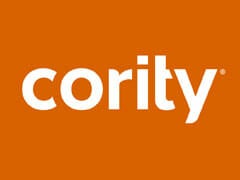Following a recent webinar on the UK Government’s Streamlined Energy and Carbon Reporting (SECR) policy last week, we have answered some of the most frequently asked questions about SECR and what it means for organizations.
Which organizations are captured by Streamlined Energy and Carbon Reporting (SECR)?
Quoted companies, Large Limited Liability Partnerships (LLPs) and large unquoted companies in the UK are required to report under SECR. ‘Large’ in this case is defined as a company that satisfies two or more of the following requirements; Balance Sheet (£18m+), turnover (£36M+) or employees (250+).
Is SECR reporting mandatory?
Yes, for any company that meets the requirements listed above.
In which report should an organization disclose the information?
In your Directors’ report as part of your annual filing obligations.
As a UK organization to what extent do we need to capture Supply chain emissions?
Supply chain emissions fall under Scope 3 emissions. If you are a Large unquoted company or an LLP you will need to report on your “emissions from business travel in rental cars or employee-owned vehicles where they are responsible for purchasing their own fuel”. Business travel falls into Scope 3, however, would not fall under supply chain emissions. Reporting on all other Scope 3 emissions e.g. materials, transportation and distribution emissions, is voluntary.
What if your annual reporting year starts on the 1st of March 2019? When would you have to report?
The SECR regulation applies to companies with financial years starting on or after 1 April 2019. Therefore, if your reporting year starts on the 1st of March 2019 which falls before the 1st of April 2019, you would need to comply with SECR from 1st March 2020 and report in the year following.
How do you get audited for SECR compliance? How can we take the necessary steps to have everything prepped for a compliance audit?
Companies do not need to get audited to assess their compliance with SECR, there is also no requirement in the legislation to be independently assured. However, it is recommended as best practice. The Conduct Committee of the Financial Reporting Council is responsible for monitoring compliance with company reports and has the power to enquire into cases where it appears that relevant disclosures have not been provided.
What methodology should I use to calculate my organization’s carbon emissions?
While there is no prescribed methodology under the legislation robust and accepted methods must be used such as GHG Protocol methodology and Defra emissions factors. The Cority software uses these along with other country-specific methodologies and updates emission factors as they are published.
Sustainability Software and SECR
Cority’s award-winning sustainability software is used by organizations to collect, manage, analyze and report their sustainability data in compliance with SECR. For more information on how Cority’s software can enable companies to meet multiple global sustainability reporting requirements, including SECR, click here.

